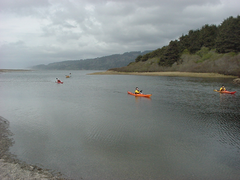A small American Indian tribe in northern California has won the right to pursue development of a casino thanks to a federal appeals court decision.

A previous ruling by the US 9th Circuit Court of Appeals had threatened the land ownership claims of tribes recognised by the federal government after 1934, roughly half of the 566 tribes with legal recognition.
The 2014 ruling agreed with California's position that the federal government had improperly given an environmentally sensitive 11-acre parcel on Big Lagoon, north of Eureka, to a tribe known as Big Lagoon Rancheria.
But the tribe, backed by the US Department of Justice, appealed. And last week the 9th Circuit unanimously overturned last year's ruling. “The principles at stake in this case matter for scores of tribes and millions of acres of tribal land,” said Sam Hirsch, who argued the case as acting assistant attorney general in charge of environmental litigation at the Justice Department. “We had a responsibility to stand up for those American Indians whose interests were endangered.”
The federal government purchased the parcel in 1994 for Big Lagoon Rancheria, a small tribe consisting primarily of one extended family that had owned an adjoining property since 1918.
When the tribe indicated that it wanted to build a casino and resort on the land, California officials resisted, triggering years of failed negotiations and litigation over the state's demands for environmental mitigation and a share of the casino’s future profits.
If the casino plan is approved by the US Department of Interior - which made the original transfer of the Big Lagoon land - the tribe will be free to build the casino and start gaming.

